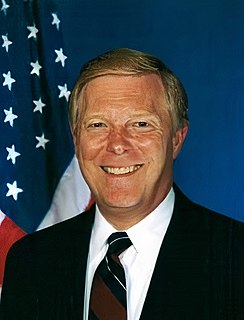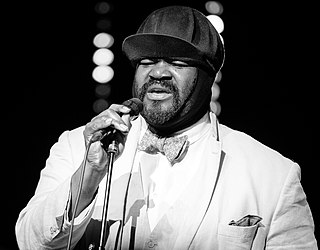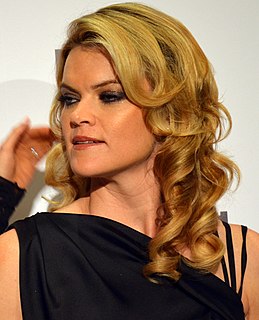A Quote by KRS-One
I am a youth minister, ordained by the Riverside Church in upper New York. But to declare myself a minister and begin to preach from the pulpit, from the Bible, to a congregation and to build a church, so to speak - I don't have a desire for that.
Related Quotes
If my life is any example, the work that youth workers are doing is very, very important. It tends to get marginalized in the church or seen as less important than being a senior minister in a large, prosperous congregation; but I don't believe that for a minute. I think this is absolutely critical work in the life of the church; and I think my path in life would have been much different if it hadn't been for my youth minister, Burt Randle, and a series of campus ministers in both college and graduate school.
Many will say, "I can find God without the help of the Bible, or church, or minister." Very well. Do so if you can. The Ferry Company would feel no jealousy of a man who should prefer to swim to New York. Let him do so if he is able, and we will talk about it on the other shore; but probably trying to swim would be the thing that would bring him quickest to the boat. So God would have no jealousy of a man's going to heaven without the aid of the Bible, or church, or minister; but let him try to do so, and it will be the surest way to bring him back to them for assistance.
I do not like a high-organized church. I think that as soon as the congregation reaches a level of one hundred or so people, it is time to build a new church. As soon as the congregation gets to the point where you are not on fairly intimate terms with every other person in that church, then you have become a theater where people can attend services. I do not think you can attend a church service. Service is not something which is there to be viewed as if it were a play or a movie.
The Bible judges the church; the church does not judge the Bible. The Bible is the foundation for and the creator of the church; the church is not the foundation for or creator of the Bible. The church and its hierarchy must be evaluated by the believer with the biblical gospel as the touchstone or plumb line for judging all truth claims.
[A.J. Muste] was from Michigan and he grew up in the Dutch Reform Church there, which is a fairly strict church. He later came to New York. He was the minister of a labor temple in the - on the East Side. Then he founded, to my knowledge, the first, maybe the only, labor school; that is, Cornell has a labor department and other schools. But this was a school for - entirely for labor organizers, and he was the - the chairman.
There needs to be an order of office, but in every single office that is presented in the Scriptures there is the personal emphasis within that legal concept. In the Church the elder is an office-bearer. But both the preaching elders and the ruling elders are "ministers," and the word "minister" is a personal relationship, it does not speak of dominance. There is to be order in the Church, but the preaching elder or the ruling elder is to be a minister, with a loving personal relationship with those who are before him, even when they are wrong and need admonition.
The minister should preach as if he felt that although the congregation own the church, and have bought the pews, they have not bought him. His soul is worth no more than any other man's, but it is all he has, and he cannot be expected to sell it for a salary. The terms are by no means equal. If a parishioner does not like the preaching, he can go elsewhere and get another pew, but the preacher cannot get another soul.




































